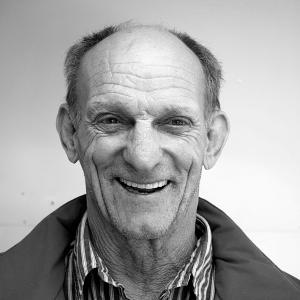Herbert Carter, Jr.

Voices of the Maine Fishermen’s Forum 2019
Voices of the Maine Fishermen’s Forum 2019 is a project of Maine Sea Grant, The First Coast, College of the Atlantic, and the Island Institute, with support from the Maine Fishermen’s Forum Board of Directors.
Ela Keegan
Herbert Carter Jr. is a commercial shellfish harvester from Deer Isle, ME.
Scope and Content Note
In this interview he speaks about the impacts of high levels of soot in the water around Deer Isle caused by mussel dragging. Carter describes his observations during the 64 years he has lived and worked on this coast and his current work to reintroduce mussel beds. Carter also highlights the decline in scallops, sea urchins, periwinkles, and fish populations, emphasizing the absence of fish in South Deer Isle waters. He notes the state regulations and calls for a return to manual shellfish harvesting and the end of dragging practices. Carter says he is determined to document and raise awareness about the ecological damage through his own efforts, including recording video footage.
Please Note: The oral histories in this collection are protected by copyright and have been created for educational, research and personal use as described by the Fair Use Doctrine in the U.S. Copyright law. Please reach out Voices@noaa.gov to let us know how these interviews are being used in your research, project, exhibit, etc. The Voices staff can help provide other useful resources related to your inquiry.
The NOAA mission is to understand and predict changes in climate, weather, oceans, and coasts, to share that knowledge and information with others, and to conserve and manage coastal and marine ecosystems and resources. The Voices Oral History Archives offers public access to a wide range of accounts, including historical materials that are products of their particular times, and may contain offensive language or negative stereotypes.
Voices Oral History Archives does not verify the accuracy of materials submitted to us. The opinions expressed in the interviews are those of the interviewee only. The interviews here have been made available to the public only after the interviewer has confirmed that they have obtained consent.
